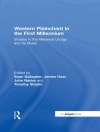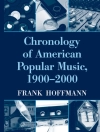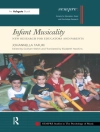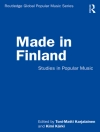Music, Education, and Religion: Intersections and Entanglements explores the critical role that religion can play in formal and informal music education. As in broader educational studies, research in music education has tended to sidestep the religious dimensions of teaching and learning, often reflecting common assumptions of secularity in contemporary schooling in many parts of the world. This book considers the ways in which the forces of religion and belief construct and complicate the values and practices of music education—including teacher education, curriculum texts, and teaching repertoires. The contributors to this volume embrace a range of perspectives from a variety of disciplines, examining religious, agnostic, skeptical, and atheistic points of view. Music, Education, and Religion is a valuable resource for all music teachers and scholars in related fields, interrogating the sociocultural and epistemological underpinnings of music repertoires and global educational practices.
Tabela de Conteúdo
Introduction / Alexis Anja Kallio, Heidi Westerlund, and Philip Alperson
Part I: Tensions and Negotiations
1. On the Role of Religion in Music Education / Estelle Jorgensen
2. Selective Affinities: Concordance and Discordance at the Intersection of Musical, Educational, and Religious Practices / Philip Alperson
3. The Performativity of Performance: Agency at the Intersection of Music and Religion in School / Heidi Westerlund, Alexis Anja Kallio and Heidi Partti
Part II: Identity and Community
4. Shaping Identities in and through Religious Music Engagement: A Case Study of an Australian Catholic Girls’ School / Janelle Colville Fletcher and Margaret S. Barrett
5. Religion and the Transmission of Thai Musical Heritage, in Thailand and the United States of America / Pamela Moro
6. The Believing-Belonging Paradigm: Music, Education, and Religion in Contemporary Serbia / Ivana Percoviç and Biljana Mandiç
7. Religious Repertoire in General Music Education: Spiritual Indoctrination or Cultural Dialogue? / Lauri Väkevä
Part III: Navigating New Worlds
8. Mysterium Tremendum et Fascinans: Spiritual and Existential Experience and Music Education / Øivind Varkøy
9. The Sacred Sphere: Its Equipment, Beauty, Functions, and Transformations under Secular Conditions / Maria B. Spychiger
10. Music Education as Sacred Practice: A Philosophical Exploration / Frank Heuser
11. Advocatus Diaboli: Revisiting the Devil’s Role in Music and Music Education / Alexandra Kertz-Welzel
Part IV: Emancipation, Regulation, and the Social Order
12. The Humanist Defense of Music Education in Civil and Religious Life: The Praise of Musicke (1586) and Apologia Musices (1588) / Hyun-Ah Kim
13. The Curious Case of ‘Good Morning Iran’: Music and Broadcast Regulation in the Islamic Republic / Erum Naqvi
14. When Hell Freezes Over—Black Metal: Emancipatory Cosmopolitanism and/or Egoistic Protectionism? / Ketil Thorgersen and Thomas von Wachenfeldt
Part V: Agency and Social Change
15. Radical Musical Inclusion in Higher Education: The Creation of Foundation Music at the University of Winchester / June Boyce-Tillman
16. Religious Identities Intersecting Higher Music Education: An Israeli Teacher Educator as a Boundary Worker in an All-Female Ultra-Orthodox Jewish Context / Laura Miettinen
17. Religion and Music in an Education for Social Change / Iris M. Yob
18. Dancing on the Limits: An Interreligious Dialogue Exploring the Lived Experience of Two Religiously Observant Music Educators in Israel / Belal Badarne and Amira Ehrlich
Music, Education, and Religion: An Invitation / Alexis Anja Kallio
Index
Sobre o autor
Philip Alperson is Professor Emeritus of Philosophy at Temple University in Philadelphia. He is editor of What is Music?, The Philosophy of the Visual Arts, and Diversity and Community and past editor of The Journal of Aesthetics and Art Criticism.
Belal Badarne is Lecturer at the College of Sakhnin for Teacher Education and in Kaye College in Be’er Sheva as well as a music educator and researcher currently responsible for the Arts and Music in Bedouin Society, for the Ministry of Education in Israel.
Margaret S. Barrett is Professor and Founding Director of the Creative Collaboratorium at the University of Queensland in Australia. Her research focuses on pedagogies of creativity and expertise, identity work in music, early musical development, engagement in music and arts activity, and music program evaluation.
June Boyce-Tilman is Professor of Applied Music at the University of Winchester in the United Kingdom and Extra-ordinary Professor at North West University, South Africa. She is the artistic convener of the Winchester Centre for the Arts as Well-being and the Tavener Centre for Music and Spirituality.
Amira Ehrlich is Lecturer and Program Coordinator of Graduate Studies in Music Education at Levinsky College of Education, Tel Aviv and Academic Program Director of the Mandel Leadership Institute’s Program for Ultraorthodox women in Jerusalem.
Janelle Colville Fletcher is Head of Music and Senior Lecturer at Tabor College of Higher Education in South Australia and research fellow with the University of Queensland. Her research interests include musical identity, adolescents’ engagement in music, music education at secondary and tertiary levels, and religious music.
Frank Heuser is Professor of Music in the Herb Alpert School of Music at the University of California, Los Angeles. His research interests include developing ways to improve music pedagogy and medical problems of performing arts.
Estelle Jorgensen is Professor Emerita of Music Education at Indiana University and is on the doctoral faculty of Walden University. She is the author of Transforming Music Education (IUP, 2003), The Art of Teaching Music (IUP, 2008), and Pictures of Music Education (IUP, 2011). She is the editor of the journal Philosophy of Music Education Review and the book series Counterpoints: Music and Education.
Alexis Anja Kallio is a music education researcher at the Sibelius Academy, University of the Arts Helsinki, working as part of the Global Visions through Mobilizing Networks: Co-Developing Intercultural Music Teacher Education in Finland, Israel and Nepal project. She is co-editor of the Nordic Yearbook of Music Education Research.
Alexandra Kertz-Welzel is Professor and Department Chair of Music Education at Ludwig-Maximilians-Universitaet in Munich, Germany. She is author and editor of several books including Globalizing Music Education: A Framework (IUP, 2018).
Hyun-Ah Kim is Postdoctoral Research Fellow of the Theological University of Kampen in The Netherlands and a Research Fellow of the European Melanchthon Academy of Bretten in Germany. She is a specialist in Christian music and on Reformation musical history and theology.
Biljana Mandić is Assistant Professor at the Faculty of Philology and Arts, University of Kragujevac in Serbia where she is Head the Music Theory and Pedagogy Program. She is the author of six textbooks and two manuals in the field of music education.
Laura Miettinen is Doctoral Researcher in Music Education at the Sibelius Academy, University of the Arts in Helsinki, Finland. Her research focuses on music educators’ intercultural competences and identity formation, cultural diversity in music education, and educational psychology.
Pamela Moro is Professor of Anthropology at Willamette University in Salem, Oregon. Her research includes work on music and musicians in Thailand; religion and ritual; and LGBT/feminist choral singing and anthropological perspectives on the violin from a global perspective.
Erum Naqvi is Faculty Writing Fellow in the Social Science and Cultural Studies Department at the Pratt Institute. Her research interests include comparative ontologies of creativity, questions about embodied understandings of artistic works and performances in music of the west and in classical and modern cultures of the Middle East, and issues of gender and sexuality and expressions of activism in various kinds of social and political regimes.
Heidi Partti is Acting Professor in the Department of Music Education at the Sibelius Academy, University of the Arts Helsinki, Finland. She is the co-author (with Anu Ahola) of Säveltäjyyden Jäljillä, a book on composing pedagogy.
Ivana Perković is Professor in the Department of Musicology, Faculty of Music, University of Arts in Belgrade, Serbia. She is the author of books on Serbian Oktoechos modal system, Serbian choral church music, and the history of the Faculty of Music in Belgrade.
Maria Spychiger is Professor of Empirical Music Education at the University of Music and Performing Arts in Frankfurt (Main), Germany. Her research interests include the psychology of music and music education, in particular the effects of music, the musical self-concept, the nature of aesthetic experience, and the phenomenon of learning from mistakes.
Ketil Thorgersen is Associate Professor in the Department of Humanities and Social Sciences Education at Stockholm University in Sweden. His research interests are in music education, the philosophy of music education, and musical learning at the intersection of autodidact learning and learning within formal institutions.
Øivind Varkøy is Professor of Music Education and Head of the Doctoral program at the Norwegian Academy of Music in Oslo, Norway, Visiting Professor in Music at Oslo Metropolitan University, and Professor of Musicology at Örebro in Sweden. His research in music education has been published in Norwegian, Swedish, English and German.
Lauri Väkevä is Professor of Music Education at the Sibelius Academy, University of the Arts Helsinki, Finland. He is the co-author (with Sidsel Karlsen) of Future Prospects for Music Education: Corroborating Informal Learning Pedagogy and (with Vesa Kurkela) De-Canonizing Music History.
Thomas von Wachenfeldt is Associate Professor at the Department of Creative Studies, Umeå University in Sweden. His research interests include the tension between formal and informal learning and how ideologies affect the perception of musicality and education within the field of traditional folk music in Sweden.
Heidi Westerlund is Professor of Music Education at Sibelius Academy, University of the Arts Helsinki, Finland. She currently leads two large-scale research projects, The Arts as Public Service: Strategic Steps Towards Equality (Arts Equal), and Global Visions through Mobilizing Networks: Co-Developing Intercultural Music Teacher Education in Finland, Israel and Nepal. She is co-editor of the book, Collaborative Learning in Higher Music Education, and Editor-in-chief of the Finnish Journal of Music Education.
Iris Yob is Professor Emerita of Education at Walden University. Her research interests are in the philosophy of education, particularly the philosophical aspects of religious and spiritual education, education in the arts and music, and education for social change and the common good.












